Parenting as an act of activism: why our stories matter
Baba fled Iran during the revolution. Crossing mountains in sub zero temperatures on a donkey and coming to the South West of England- an area he already knew well due to his navy training. There he had a family waiting for him when he arrived, but I doubt this made the knowledge he would never see his home or parents again any easier. His story of escape has been told many, many times, sometimes with pride and other times with sadness, reminiscence, and a longing for the smells, tastes and sounds of home. The many stories of Iran filled my childhood - storytelling and reminiscing of home connected him deeply to my Italian maternal grandmother , who had her own stories to tell about escape, facism and war.
Growing up the stories felt too familiar, as I heard and reheard them over and over again. It wasn’t until I became a parent myself that I began to really appreciate them. Seeing Baba sit my daughters on his lap and listening to him tell his stories and sing the songs of home to them, with those same feelings of pride and sadness, seeing his face still long for home. It’s in these stories we feel connected - connected to a place we might never set foot on, to family we largely see over a screen and to cultural traditions and heritage that might otherwise have been swept away. Once where I would have rolled my eyes at hearing the same story for at least the 100th time, now I listen softly and pray that my daughters remember these stories to tell my grandchildren and great children when I am long gone
Why do these stories matter? They matter not only because they connect us to where we have come from, they shape who we will become. The stories we tell our children are part of how we survive, how our memories live on and how we raise the next generation to honour and respect tradition whilst navigate their own transformative futures. This is parenting as activism. The most powerful moments are found when we sit down and tell our stories to our children so that they never forget who they are, where they are from and what kind of world they want to create.
As I sit writing this, London prepares itself for a large far right onslaught. I have already heard from my close colleagues that the local communities where we work feel scared. And I feel sad. But I sit and remember Baba’s story of escape. And I think about how funny it is that given the right wing obsession of arrival on boats, Baba's story doesn’t talk about arrival at all - just escape on a donkey. I make a mental note to ask him the next time we speak if he arrived on a boat, although knowing Baba his answer would probably be ‘yeah I arrived on a boat last week…’ (He also went through a phase when I was a teenager of answering the home phone with ‘hello Taliban speaking’. Thank goodness for the transition to mobile phones). Interestingly what happens in his story after escape is a life of hard work, adjustment and largely success (with many ups and downs!) It’s a shame more people couldn’t hear stories like Baba’s.
And then in the midst of writing this I opened Instagram and read the story of Joan through the Open Britain: Portraits of a Diverse Nation photography project. I was drawn to her story because there seemed to be few moments in her very young life when she wasn’t escaping from the Nazis and facism that had spread across Europe. It reminded me how polarised we have all become in the quest to validate our own narratives, we forget our common ground, we forget our shared humanity. That evening over dinner, I told my daughters Joan’s story. Why? Because telling stories like Joan’s to our children, even if they are not part of their direct experiences or cultural/ancestral memories, is activism. Reminding our children of our shared common ground through storytelling is political, and encouraging them to dream for a better world is both healing and a form of resistance, especially in these polarising times
Open Britain, installation view at Charing Cross Hospital
My 14 year old’s response to Joan’s story was that she wished Muslims, like Baba, and Jews like Joan, could sit down and listen to and remember each other's stories. Perhaps in this, there would be peace. Her response reminds me how similar we are. The dreamers who dare to get lost. My nine year old wanted to send magical unicorn dust to Joan to take away all her bad times. There is a story bubbling in her somewhere about this, perhaps I will be lucky enough to hear her tell it to my grandchildren one day.
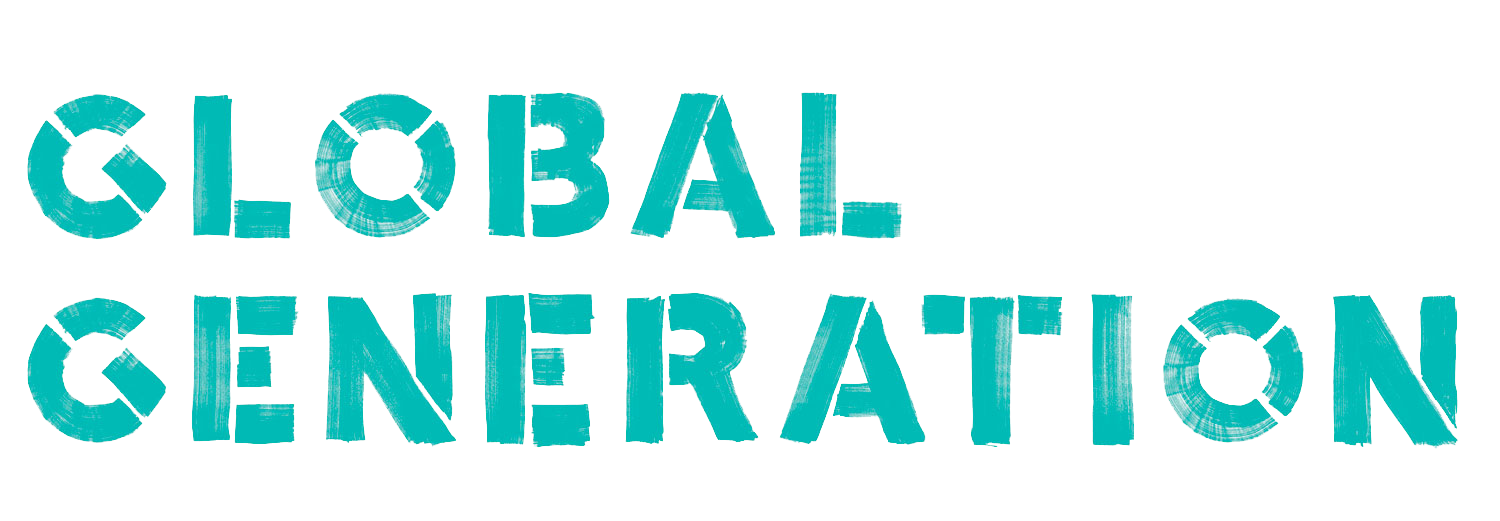
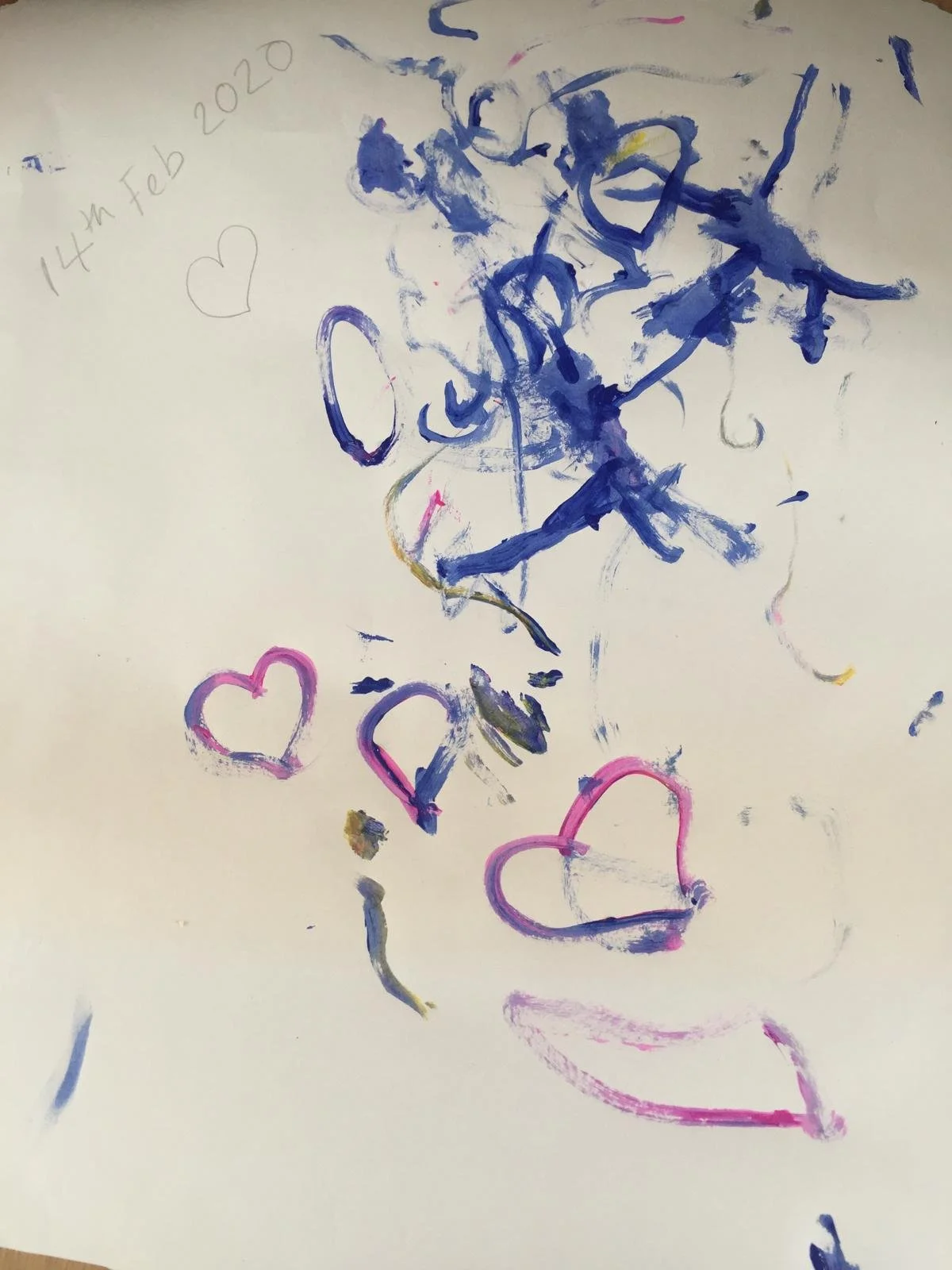
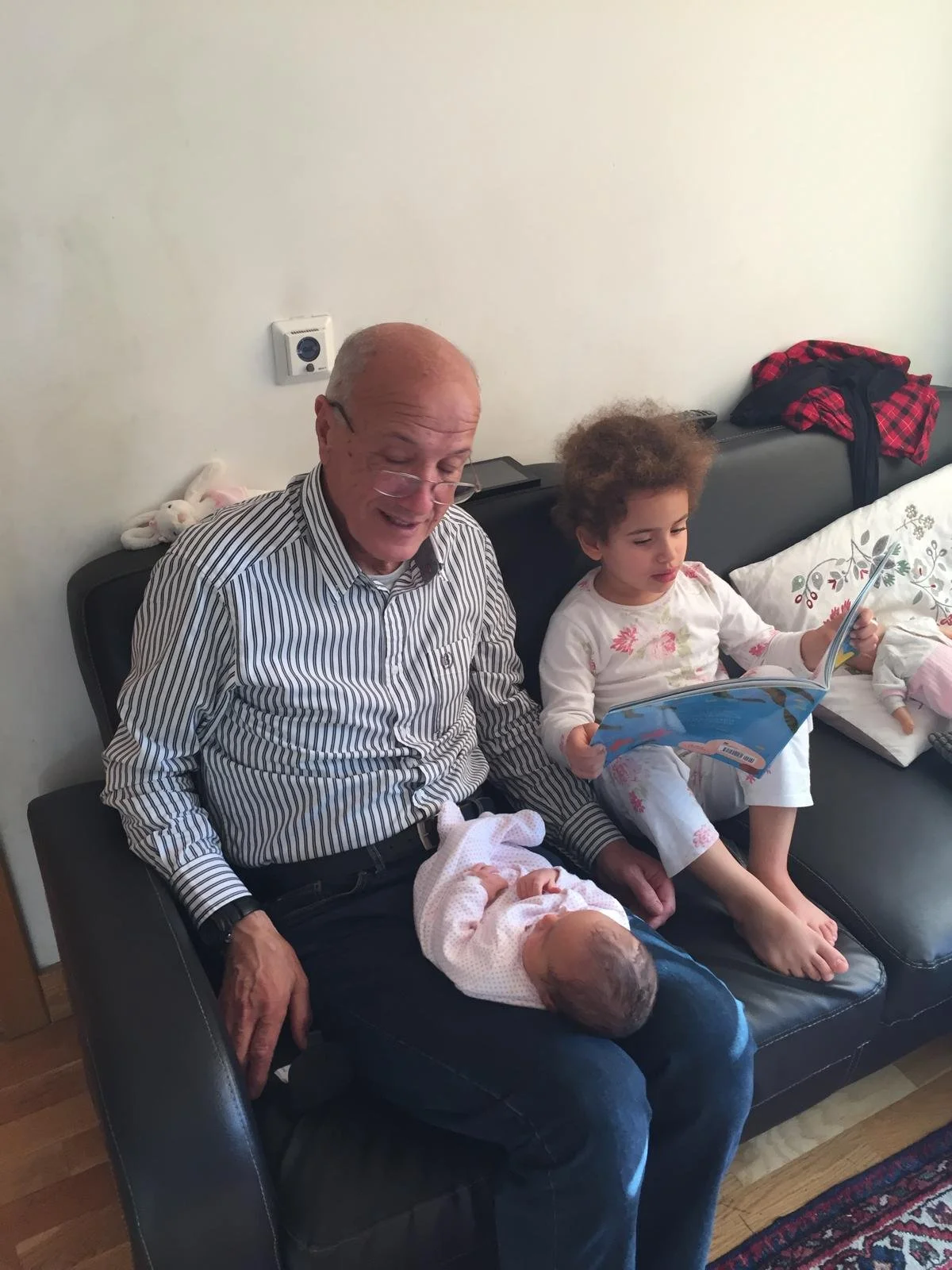
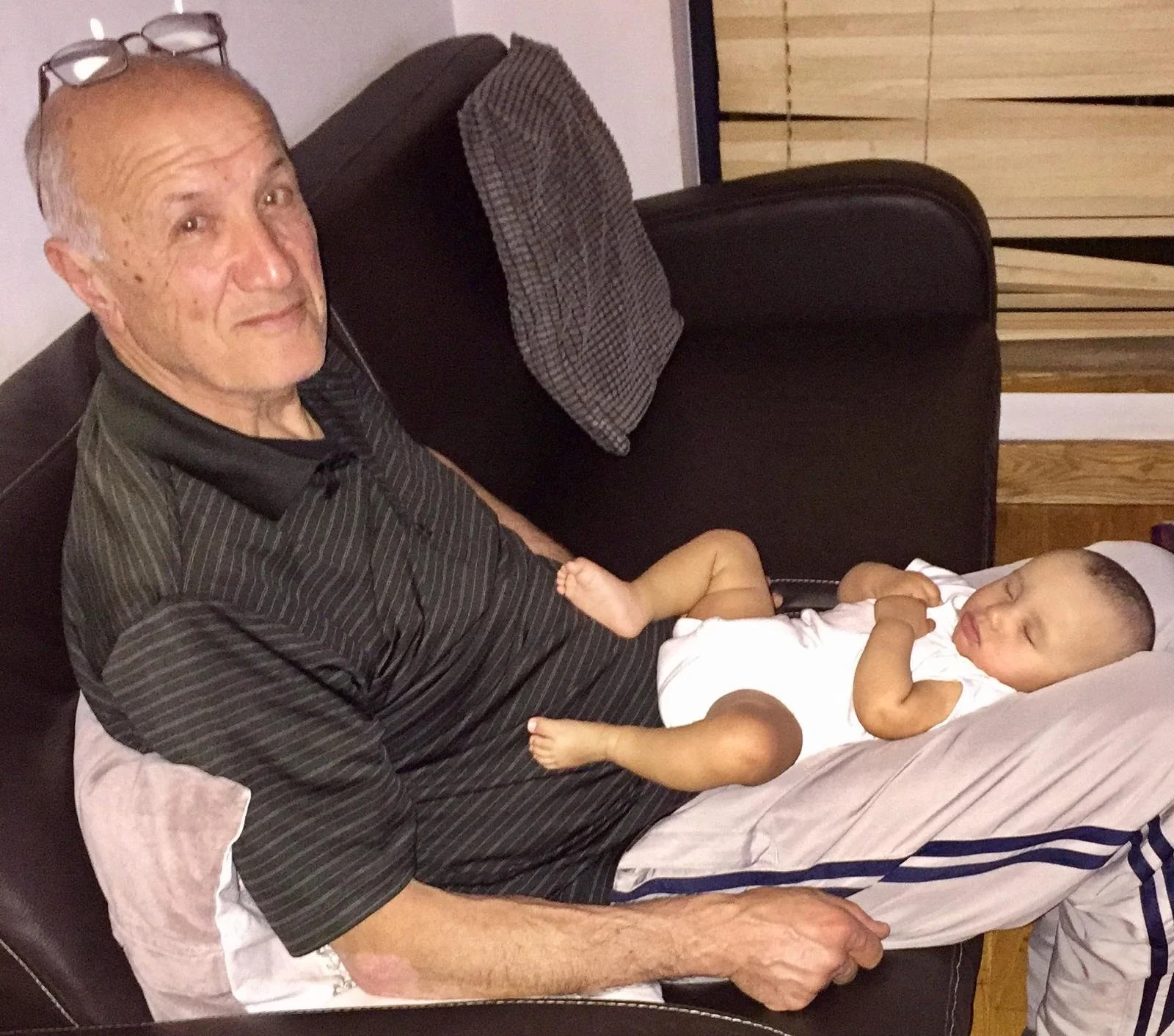
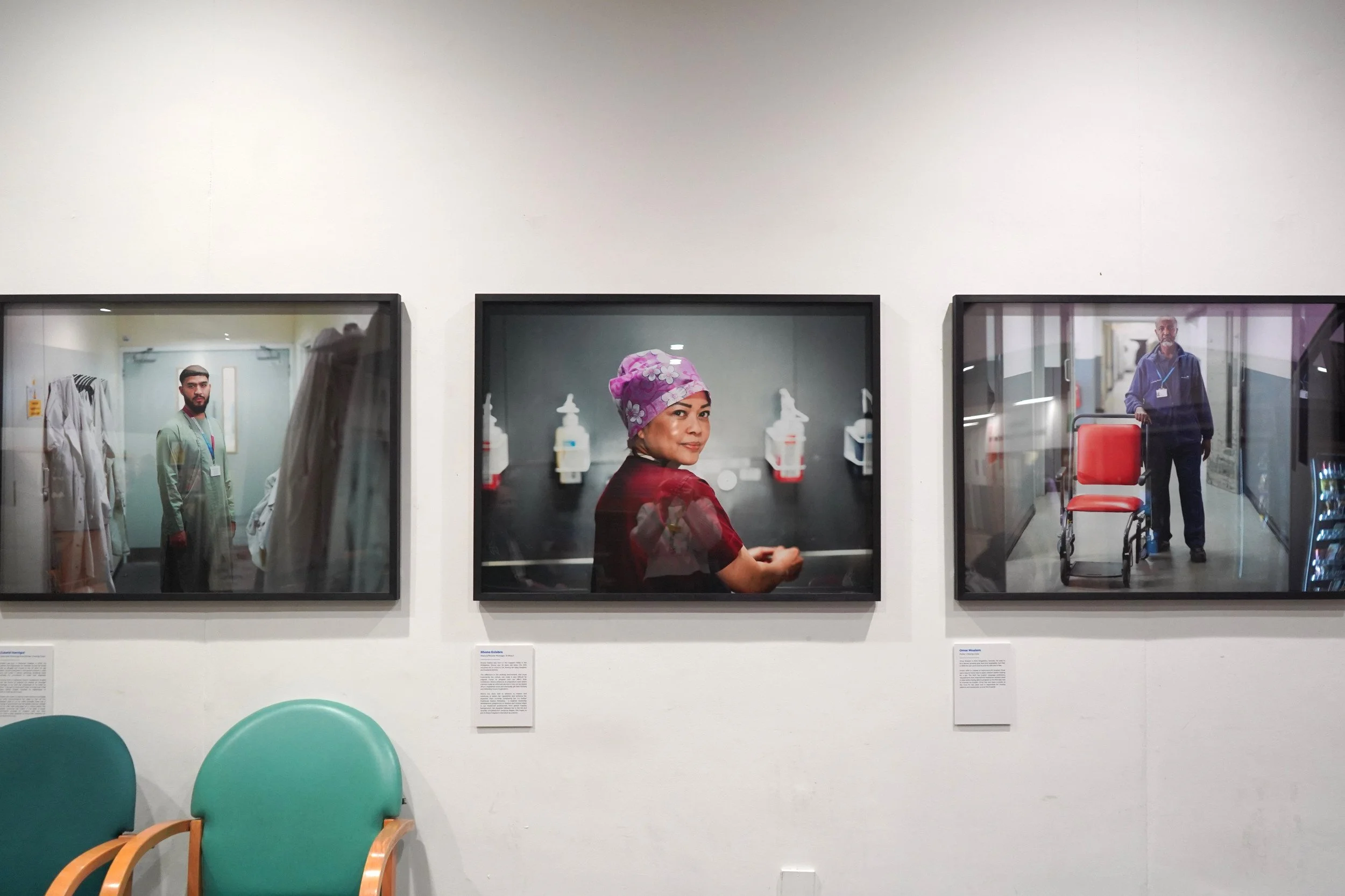
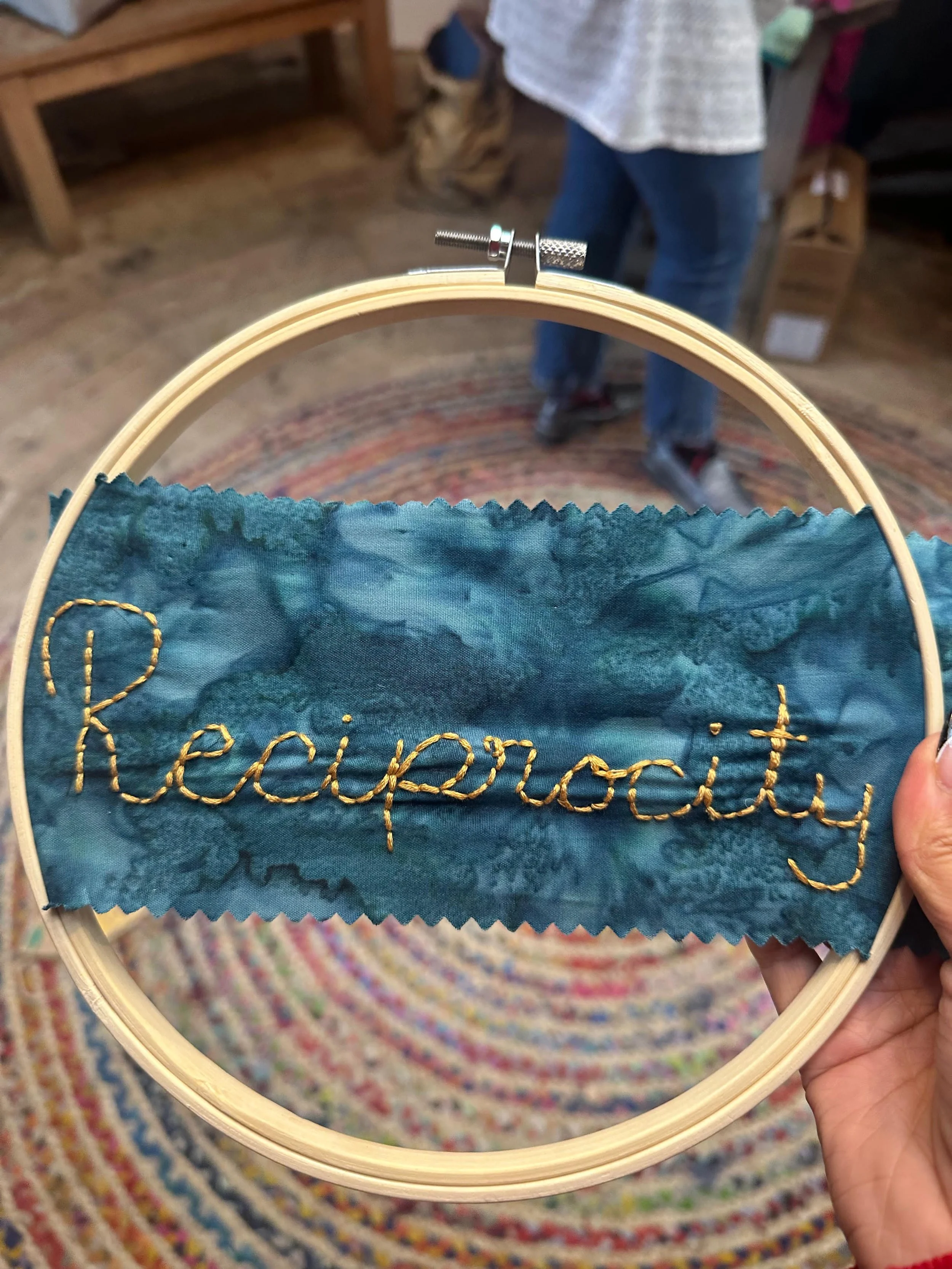
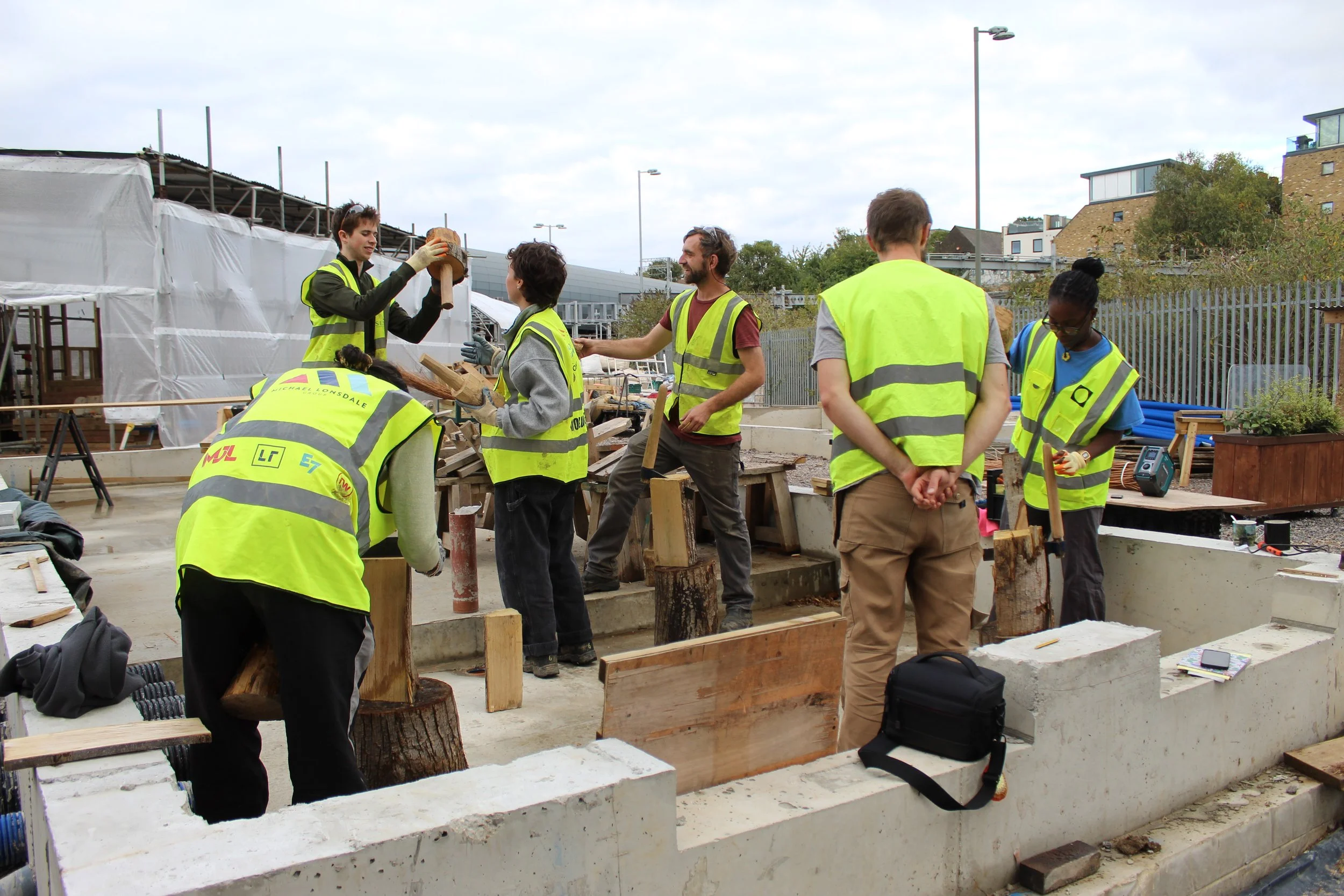
The Story Garden closed on Ossulston Street in September 2025 and we launched a massive giveaway and resource distribution project. It was a learning on